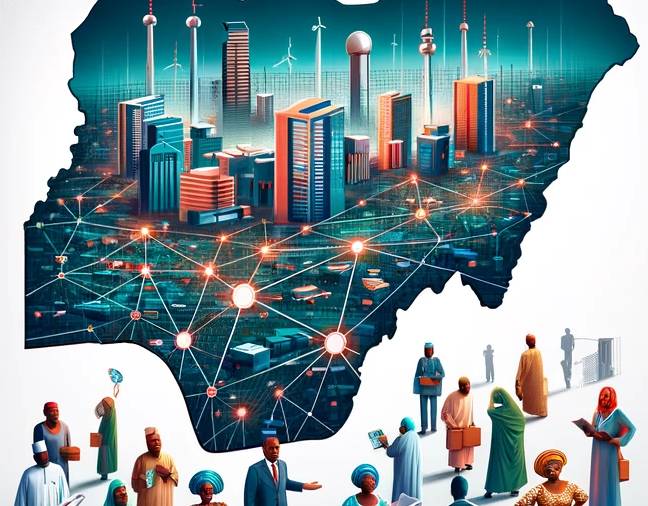In the heart of West Africa, where vibrant urban centers meet vast expanses of rural landscapes, a digital transformation is underway. Lagos, Nigeria’s bustling economic hub, stands as a testament to the nation’s burgeoning tech-savvy population. However, as the city thrives in the digital age, the importance of extending network infrastructure products to Lagos and its surrounding rural areas has become more critical than ever.
The Urban Tech Oasis: Lagos, Nigeria
Lagos, Nigeria’s largest city and financial powerhouse, has emerged as a dynamic tech ecosystem. Home to thriving startups, innovative entrepreneurs, and a burgeoning tech-savvy workforce, Lagos is at the forefront of Africa’s digital revolution. Its urban landscape is dotted with co-working spaces, tech hubs, and a burgeoning fintech industry.
Yet, Lagos also grapples with infrastructure challenges. A sprawling population, rapid urbanization, and an ever-growing demand for connectivity underscore the need for robust and accessible network infrastructure products. Reliable high-speed internet, improved mobile coverage, and expanded data connectivity are essential elements in sustaining Lagos’s digital growth.
Extending the Reach: Rural Nigeria’s Network Infrastructure Needs
Beyond the bustling city limits of Lagos, rural Nigeria beckons with its untapped potential. The rural areas surrounding Lagos are home to a significant portion of the nation’s population, many of whom remain underserved in terms of network infrastructure. Bridging the urban-rural digital divide is not only a necessity but also a path to inclusive economic development.
- Agricultural Advancements: Rural Nigeria is primarily agrarian, and digital technologies can revolutionize agriculture. Access to network infrastructure in these areas can provide farmers with vital information on weather, crop management, and market prices, ultimately boosting agricultural productivity.
- Healthcare and Education: Improved connectivity can enhance healthcare services and educational opportunities in rural areas. Telemedicine, e-learning, and remote consultations become feasible with reliable network infrastructure products, narrowing the healthcare and education gaps.
- Economic Empowerment: By connecting rural areas, local businesses gain access to broader markets. E-commerce, digital payments, and online trading become viable options, fostering economic growth and job creation.
- Government Services: Efficient delivery of government services, such as e-governance and digital ID initiatives, becomes possible with network infrastructure. This can streamline public administration and reduce bureaucracy.
- Community Development: Network infrastructure products empower communities to collaborate, share knowledge, and strengthen social bonds. They facilitate community-driven initiatives and support local governance.
The Way Forward: A Holistic Approach
Addressing the need for network infrastructure products in Lagos and its rural surroundings requires a multifaceted approach:
- Investment: Public and private sector investments in network infrastructure projects are essential. Public-private partnerships can expedite the expansion of digital connectivity.
- Regulatory Frameworks: Clear and conducive regulatory frameworks should promote fair competition, innovation, and market entry by network infrastructure providers.
- Education and Awareness: Raising digital literacy levels in rural communities is crucial. Training programs and awareness campaigns can empower individuals to make the most of digital tools.
- Innovation: Encouraging innovation in network technology and service delivery can lead to cost-effective solutions tailored to rural needs.
- Collaboration: Collaboration among stakeholders, including government agencies, telecommunications companies, tech startups, and NGOs, can amplify the impact of network infrastructure initiatives.
As Lagos, Nigeria, and its surrounding rural areas continue to evolve, bridging the digital divide between urban and rural settings is not just a technological challenge but a socioeconomic imperative. With the right investments, policies, and a shared commitment to inclusivity, network infrastructure products can unlock the full potential of Nigeria’s diverse landscape, fostering economic growth and improving the lives of its people.

